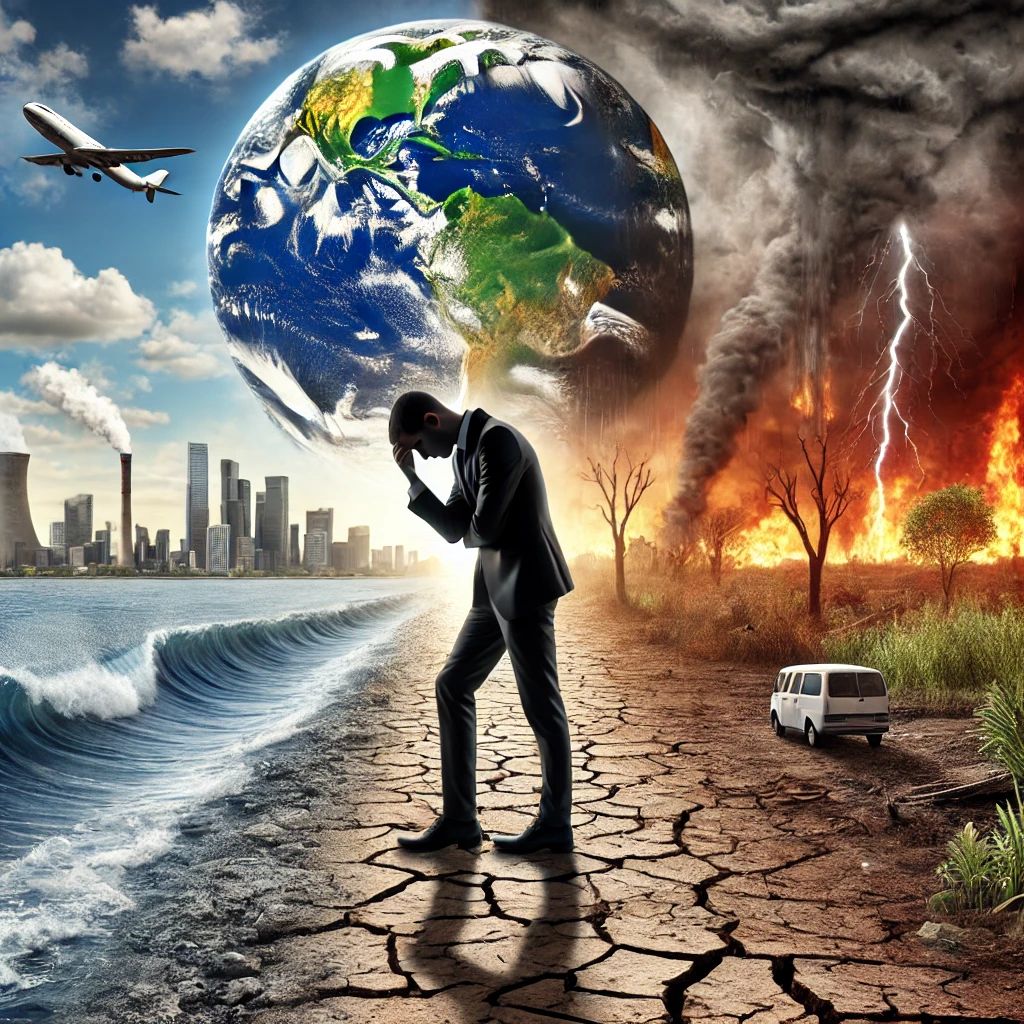Climate change is one of the most pressing global threats of the 21st century. While the focus is often on visible consequences such as melting ice caps, extreme weather events, and rising sea levels, there is a less obvious yet highly significant aspect – the impact of climate change on mental health. This topic is gaining increasing attention from experts, as the effects of global climate shifts are affecting people on a psychological level, creating new forms of stress and anxiety.

Mental Consequences of Natural Disasters
One of the most apparent ways climate change affects mental health is through natural disasters like floods, hurricanes, droughts, and wildfires. People who survive these events often experience post-traumatic stress disorder (PTSD), depression, and feelings of insecurity. Losing homes, livelihoods, or even loved ones can cause deep psychological trauma.
Climate Anxiety
The term “climate anxiety” is becoming increasingly common in contemporary psychology. Many people, especially younger generations, feel overwhelming anxiety due to the uncertainty of the planet’s future. The feeling of powerlessness and uncertainty can lead to constant worry and emotional burden, severely impacting the quality of life.
Eco-Trauma and Psychological Stress from Environmental Changes
Climate change forces many people to relocate from their homes, creating additional stress. Forced migration due to natural disasters leads to social and cultural shocks, loss of identity, and feelings of isolation. These changes can cause long-lasting mental health issues.
Reduction of Natural Resources and Standard of Living
Climate change threatens access to essential resources such as food and water. Resource shortages create new forms of stress and anxiety as people struggle to survive. This particularly affects vulnerable and poor communities that lack the capacity to cope with these new conditions.

Coping with Climate Change and Mental Health
Addressing the mental health impacts of climate change requires a multidisciplinary approach. Here are some strategies:
Mental Health Support: Access to mental health services is crucial for people affected by natural disasters and eco-trauma. Psychological support can help reduce stress and cope with trauma.
Awareness and Education: Educating people about climate change and its consequences can help reduce climate anxiety. Informed individuals are more likely to take action and feel empowered in the fight against climate threats.
Building Community Resilience: Social and cultural programs that strengthen community resilience can help people adapt to climate changes and develop psychological strength to cope with new conditions.
Activism and Engagement: Getting involved in environmental protection activities can be a way to reduce climate anxiety. Activism provides a sense of control and awareness that positive changes can be made.
While climate change is often seen as a physical phenomenon impacting our environment, it has profound consequences on the mental health of individuals. Increased anxiety, depression, and psychological trauma are the hidden effects of this global crisis. It is essential not only to address climate change at an ecological level but also to provide support for those mentally affected by these changes to build resilient and healthy communities for the future.
